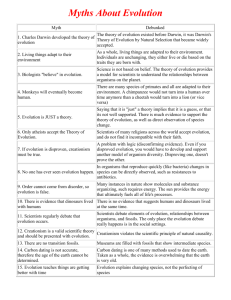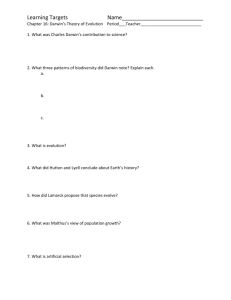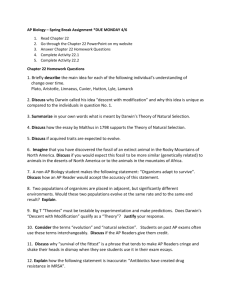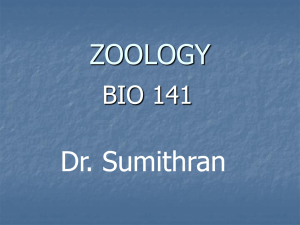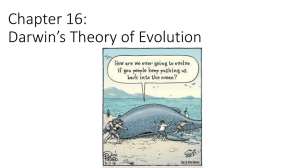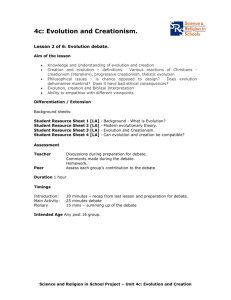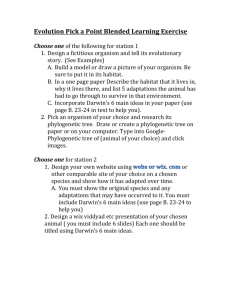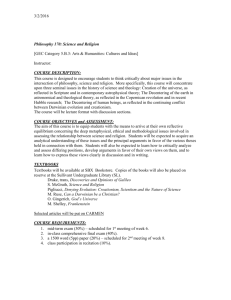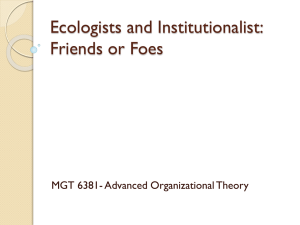Final project
advertisement
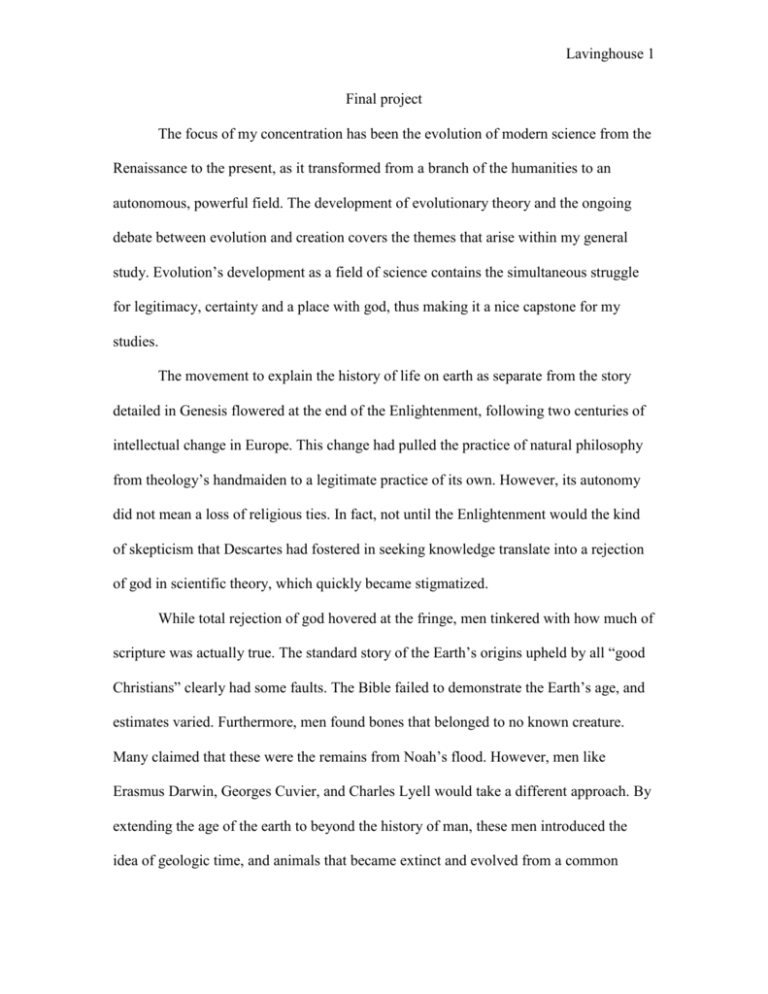
Lavinghouse 1 Final project The focus of my concentration has been the evolution of modern science from the Renaissance to the present, as it transformed from a branch of the humanities to an autonomous, powerful field. The development of evolutionary theory and the ongoing debate between evolution and creation covers the themes that arise within my general study. Evolution’s development as a field of science contains the simultaneous struggle for legitimacy, certainty and a place with god, thus making it a nice capstone for my studies. The movement to explain the history of life on earth as separate from the story detailed in Genesis flowered at the end of the Enlightenment, following two centuries of intellectual change in Europe. This change had pulled the practice of natural philosophy from theology’s handmaiden to a legitimate practice of its own. However, its autonomy did not mean a loss of religious ties. In fact, not until the Enlightenment would the kind of skepticism that Descartes had fostered in seeking knowledge translate into a rejection of god in scientific theory, which quickly became stigmatized. While total rejection of god hovered at the fringe, men tinkered with how much of scripture was actually true. The standard story of the Earth’s origins upheld by all “good Christians” clearly had some faults. The Bible failed to demonstrate the Earth’s age, and estimates varied. Furthermore, men found bones that belonged to no known creature. Many claimed that these were the remains from Noah’s flood. However, men like Erasmus Darwin, Georges Cuvier, and Charles Lyell would take a different approach. By extending the age of the earth to beyond the history of man, these men introduced the idea of geologic time, and animals that became extinct and evolved from a common Lavinghouse 2 ancestor. These early views would appear in Charles Darwin’s more developed concept of the evolution of species. They would also set the debate for how much of scripture could be culled out as metaphor, and how much of it was actually true. One of the many problems with dethroning the Bible was the certainty and legitimacy vacuum it would leave. If your theory didn’t have god backing it up, what else could give it the credibility and certainty to be accepted? Natural philosophers had been working on this problem since the seventeenth century. Their solution made legitimacy and certainty contingent upon good character in addition to reproducible and falsifiable experiments. Given this background, Darwin’s story appears all the more powerful. He struggled with legitimizing a theory that challenged the prevailing view on the origin of species, and in his own uncertainty held it down until another man produced the same theory. He stockpiled evidence in his study of Galapagos finches, domestic pigeons and other studies, and struggled to present his idea as clearly and fully as possible. He organizes his work as a large tome, attempting to clearly explain each point of his theory. When Darwin finally published, the theory of evolution became the counter to the creation story of Genesis, thereafter the Creation theory. From its founding, the followers of Creationism have questioned both evolution’s acceptance of god and its legitimacy. The debate between the two has accentuated Creationism’s nonscientific status from the evolutionists’ perspective, while Creationists condemn evolution as a threat to a healthy social environment. My project will reveal how evolutionary arguments against Creationism microscopically reflect the modern definition of science.
